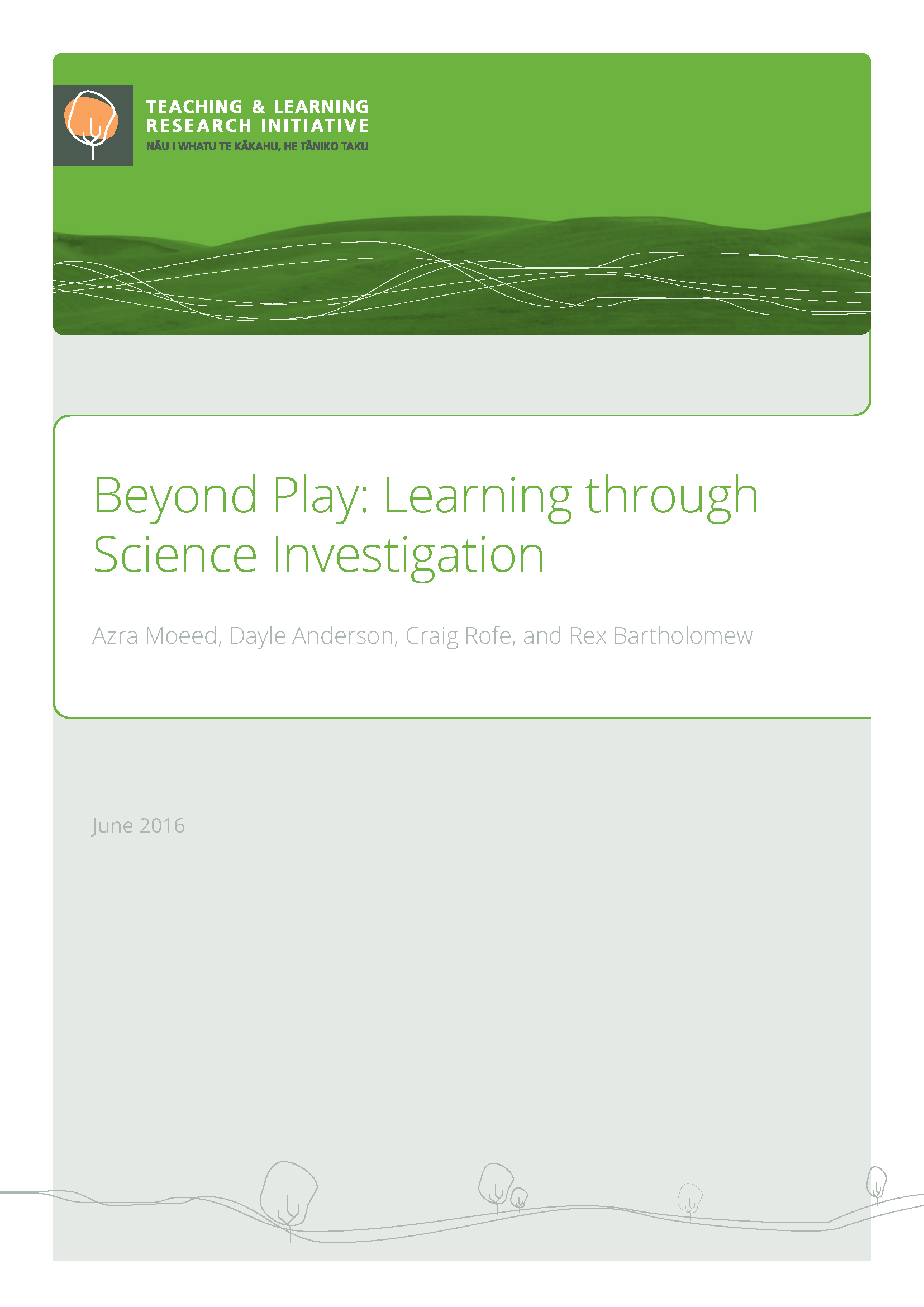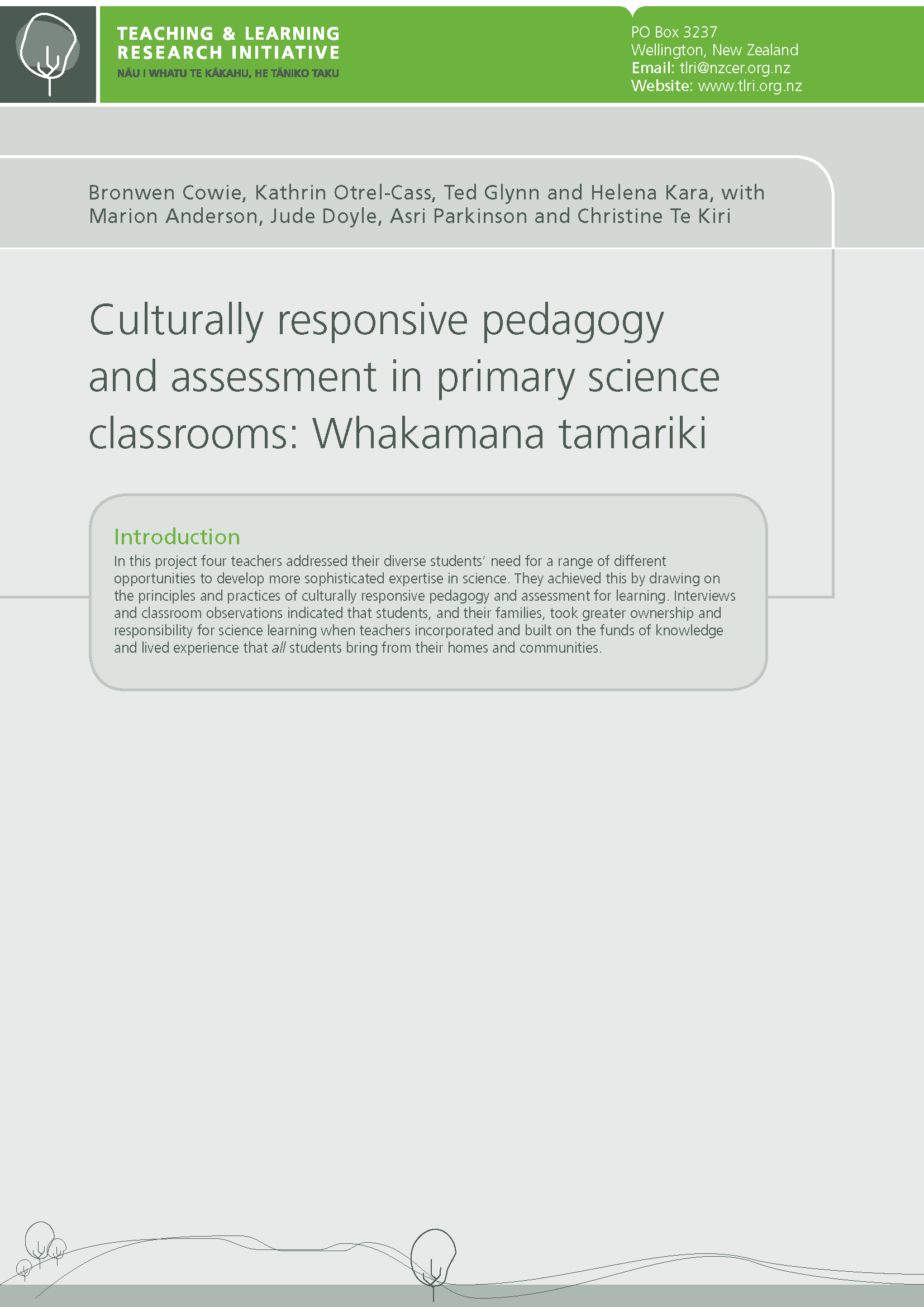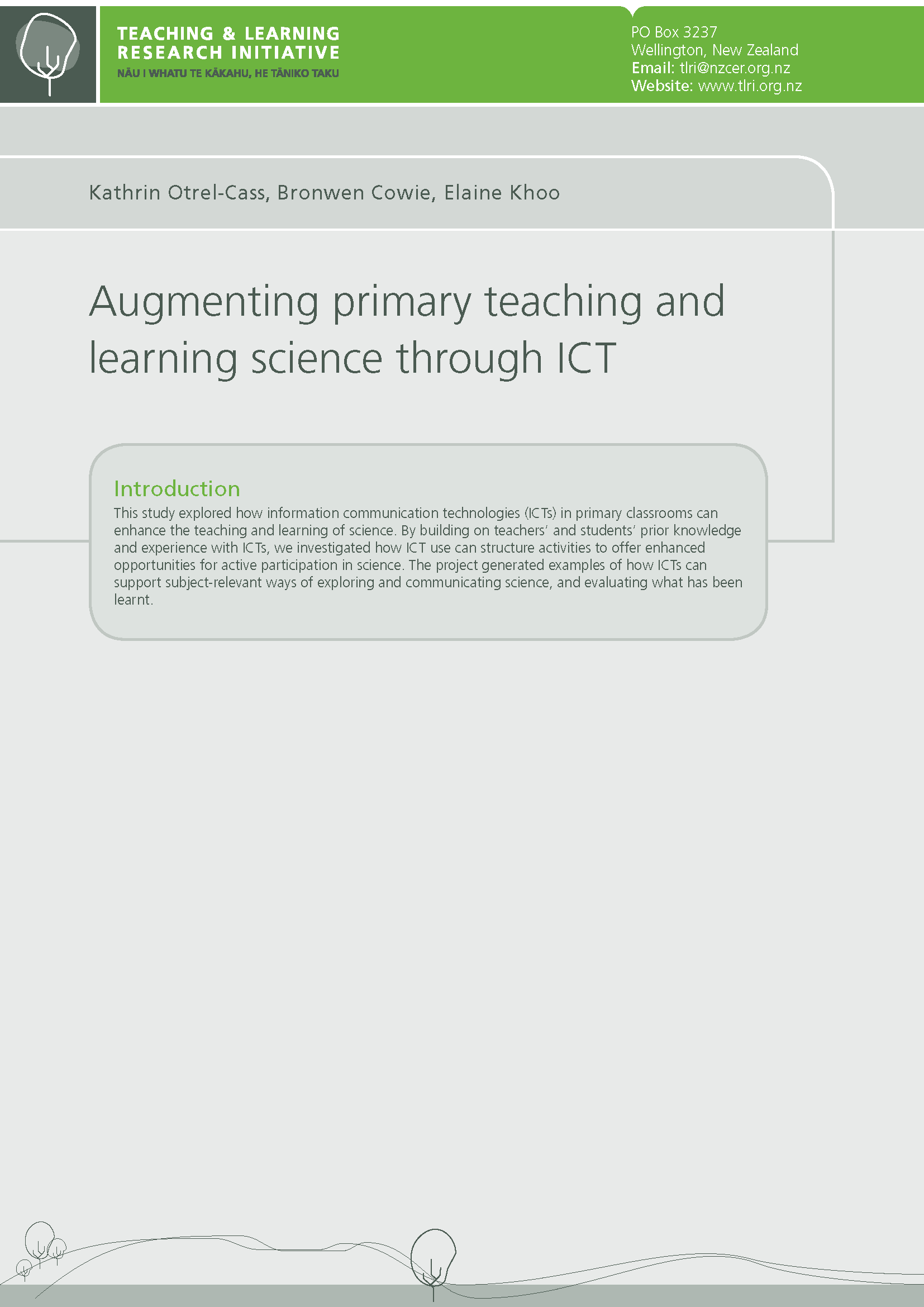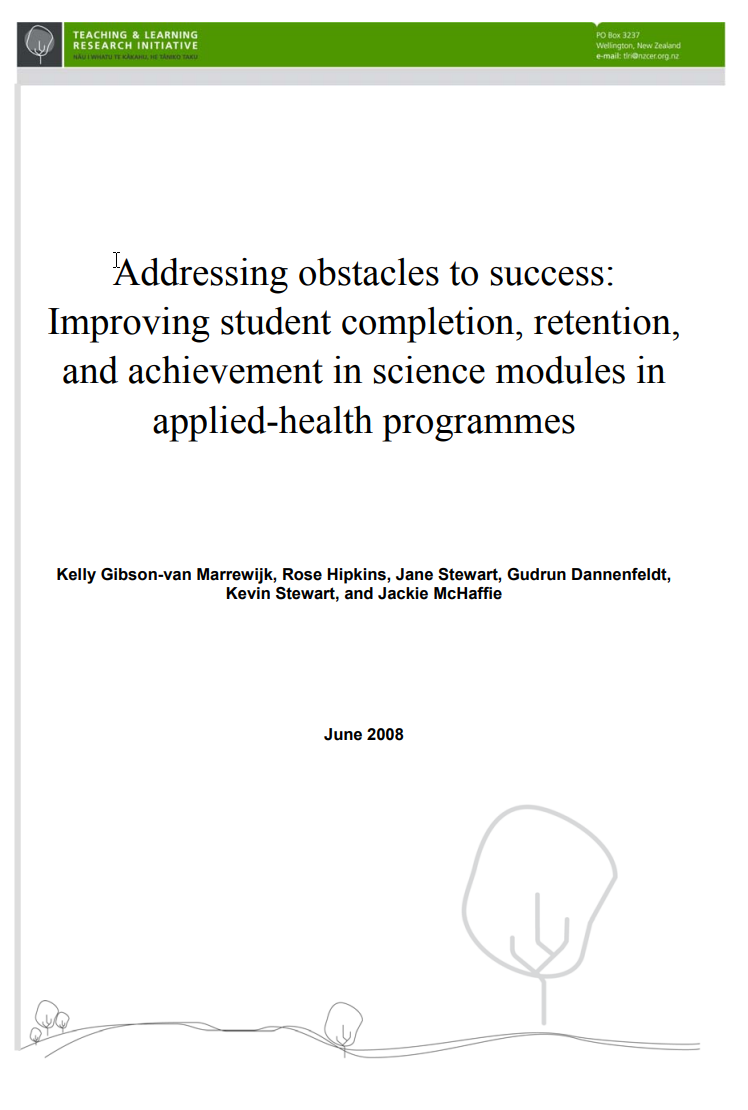
Beyond play: Learning through science investigation
Acknowledgements We would like to thank the Teaching and Learning Research Initiative for providing the funding for this project and Dr Rose Hipkins for her support as our monitor. We are grateful for the guidance from Professor Robin Millar who gave us his thoughts, time, and the confidence to take on this project. Our sincere thanks to the schools, teachers, and students without whom this research would not have had much to say. Kia ora tatou. Aims and background The science learning area of the New Zealand Curriculum (NZC) (Ministry of Education, 2007) requires students to learn about “features of scientific knowledge and the processes by which it is developed” and




